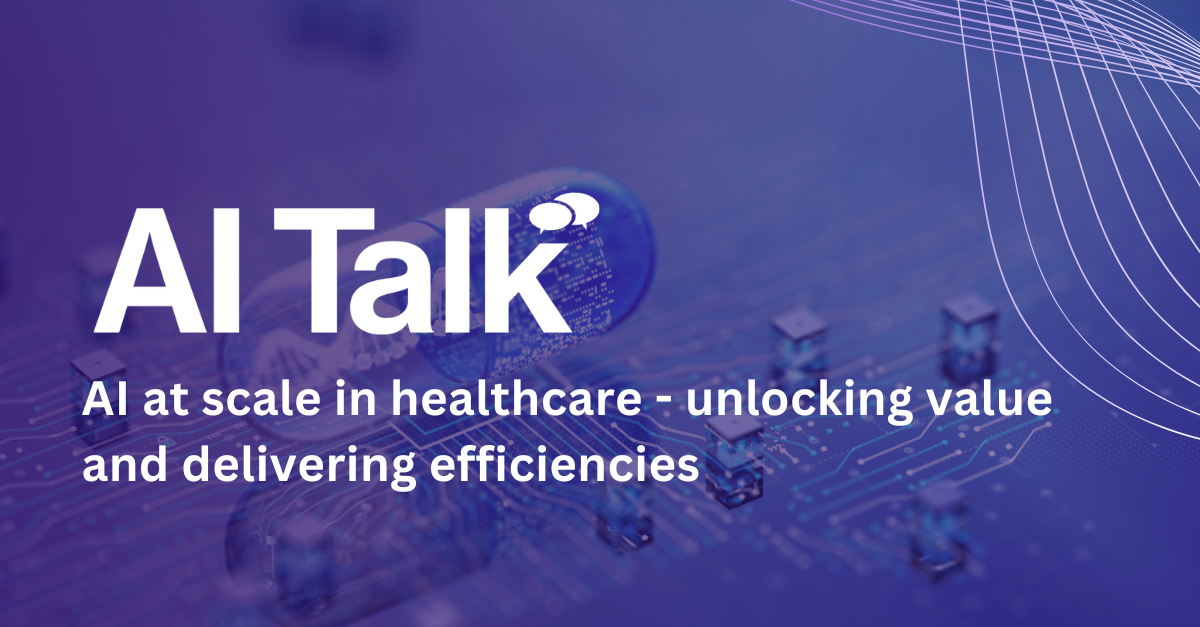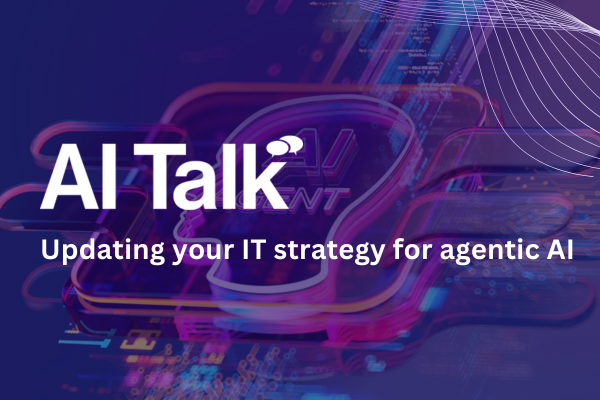Six signs your business needs intelligent automation

Neil Murphy at ABBYY explains how businesses can make the most of AI to avoid falling behind in 2024
Innovation is pushing the boundaries of what businesses can accomplish in terms of efficiency and operational excellence. From software powered by AI to low-code enterprise platforms, there are so many paths towards digital transformation that it can be hard to know what’s best for your organisation.
One thing, however, is for certain: if you aren’t ahead of the intelligent automation curve, you could soon be falling behind.
It’s true that the saturation of buzz around generative AI and the constant upcropping of startups hoping to capitalise on the hottest IT trends can instil scepticism in some IT leaders – after all, it’s unadvisable to adopt every new enterprise tool you see purely for fear of accruing a technical debt. However, those who are entirely resistant to automation are needlessly limiting their businesses’ potential in the long run.
As we enter a new year, IT leaders and innovation officers should take an honest look at the state of their organisation’s processes. If any of the following situations apply, it should be taken as a hint that you are already overdue for intelligent automation.
1. Your team is tired of manual entry
Are your employees feeling fed-up with repetition and monotony? It’s likely that a high volume of their tasks could be expedited through intelligent automation.
This isn’t to say that their role can be replaced entirely by technology, but rather augmented in a way that increases both productivity and fulfilment. Employees often spend hours of their days on arduous work – typically involving documents – instead of stimulating, challenging, and rewarding projects.
Intelligent document processing (IDP) leverages AI with optical character recognition to quickly read and extract key data from documents, classify data, and accurately ingest it into other applications such as enterprise resource planning (ERP) or robotic process automation (RPA) platforms. IDP solutions can yield high straight-through processing rates, meaning documents like invoices can be processed without any manual intervention. Instead of spending hours on manual data entry, employees can instead monitor accuracy and intervene only when necessary.
IDP solutions are also immune to fatigue, reducing the likelihood of errors. Not only that, but AI-driven document skills can be plugged easily into existing workflows and trained to yield better results by processing volumes of documents, increasing the value of IDP over time.
While these platforms don’t completely replace humans, they drastically improve document-centric processes, allowing employees’ time to be spent on more fulfilling work while also boosting an organisation’s revenue by accelerating time-to-value in achieving business goals.
2. You experience high customer onboarding abandonment
Consumers aren’t immune to repetition fatigue either. Research shows that the top three reasons behind onboarding abandonment are too many steps, lengthy identity proofing and excessive manual entry.
Customers want to feel like a valued priority, and demanding excessive manual entry and invasive identity proofing is contrary to that expectation.
Intelligent identity proofing ensure businesses’ first point of contact with customers is positive. Instead of toggling between device screens, applications, and emails, identity proofing can be completed from a single screen in under two minutes.
Streamlining onboarding with intelligent identity proofing allows people to upload all pertinent information by using their smartphone camera to capture and send trailing documents to automatically populate form fields. This emphasises that the customer’s experience is a priority, increasing customer satisfaction and advocacy, and driving revenue. If your business faces frequent onboarding dropouts, intelligent identity proofing is the solution for you.
3. Only your IT department can use your tools
If legacy systems do not permit easy customisation, the back end can quickly become encumbered with support tickets and bureaucracy that delay the customer’s outcome, causing frustration.
Organisations should adopt low/no-code platforms with accessible interfaces that can be used outside of the IT department. Rather than depending on employees with backgrounds in tech or computer science, businesses can empower the “citizen developer,” enabling a new standard of agility that can help your business deliver value at speed.
4. You have bottlenecks in your processes
Organisations experience bottlenecks in their workflows but lack the visibility they need to accurately address pain points and make appropriate changes. Moreover, 70% of automation attempts fail because of unclear or misguided goals.
With process intelligence, processes can be scrutinised at a granular level. This is the combination of task and process mining; task mining examines individual actions such as keystrokes, while process mining is more concerned with steps in an entire workflow. Monitoring processes with these techniques yields data that helps businesses more accurately understand how to optimise their operations, whether it be through hiring, automating, or reallocating resources.
Sometimes organisations attempt to automate the wrong stage of a workflow, which can have unintended consequences like shifting a bottleneck to later in a process where it becomes more visible to the consumer. This uncertainty can hinder digital transformation success. If your organisation is considering intelligent automation and wants to ward off failure, process intelligence is your key to ensuring automation initiatives are successful.
5. You struggle with scalability
Volatile economic and market factors shift businesses’ needs over time – but adapting processes to a shift in the status quo should not be a difficult task.
Intelligent automation offers scalability that enterprises need to proactively adjust their operations. Whether it’s a change in the quantity of documents being processed, the number of employees delegated to a task, or onsite or remote, intelligent automation gives organisations visibility and flexibility when faced with growing or diminishing demand for their services.
The economy is cyclical, markets are fluid, and businesses should never expect to operate at the same volume and tempo for very long. Nonetheless, decision makers should always be prepared to make the appropriate changes necessary to protect the long-term health of their employees and their organisation. Intelligent automation ensures that they can make these changes as quickly as their business landscape evolves.
6. Everything is on premise
Organisations that are equipped to embrace cloud-native platforms can reap rewards of newfound efficiency and flexibility. Use of the cloud is a major aspect of scalability that can – to an extent – future-proof business from unforeseen events.
Cloud-native platforms empower easier management of systems and solutions, drive collaboration, and can ultimately result in a superior customer experience. A well-designed security strategy also reduces the risk of information security discrepancies relative to on-premises tech stacks.
If your business has the infrastructure necessary to use cloud-native solutions, consider adopting intelligent automation platforms that are built around cloud technology.
Intelligent automation in your business
When adopted with the right business goals and implementation strategies in mind, automation can have a transformative effect on organisations that benefits employees, customers, and other stakeholders.
If your organisation struggles with efficiency, front-facing experience, scalability, or any other facet of operational excellence, it’s time to put your information to work in 2024 and start automating intelligently.
Neil Murphy is CSO at ABBYY
Main image courtesy of iStockPhoto.com

Business Reporter Team
Most Viewed
Winston House, 3rd Floor, Units 306-309, 2-4 Dollis Park, London, N3 1HF
23-29 Hendon Lane, London, N3 1RT
020 8349 4363
© 2025, Lyonsdown Limited. Business Reporter® is a registered trademark of Lyonsdown Ltd. VAT registration number: 830519543





